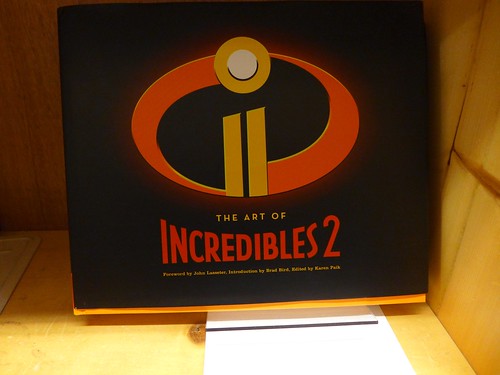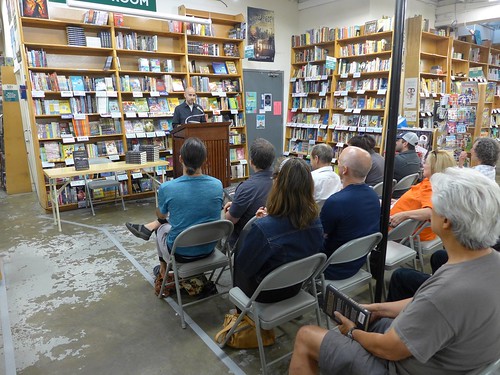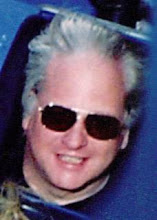Even before the cartoon begins, we got a brief promo from some of the voice actors acknowledging a gap of fourteen years between the original in 2004, and this sequel in 2018. That promo may be just for theaters, dunno if you'll see it on the DVD, in front of the main feature.
The movie opens right where the last one ended and pursues the same themes. The Mole, by the way, is never caught (spoiler alert), is simply forgotten about. He gets away with his crime whereas superheroes are framed by the media as the bad guys. The public seems awfully gullible, as usual, as if it weren't obvious The Mole was a serious threat.
The Mole's methods of destruction are reminiscent of urban legends around Nine Eleven, which focus on gold stolen from deeply buried broken-into vaults. Superheroes did not materialize then either. Firefighters did, heroes of the real kind.
Interestingly, it's the billionaire elite who want to bring a nearly homeless family, ensconced in a motel with only two weeks unemployment left, back to prosperity. The kids are ecstatic to receive the charity of a billionaire's extra home, while mom goes to work in a PR capacity. She and the Bezos character will restore the reputation of superheroes everywhere.
There's a funny Peter Sellers allusion given the control panel in the fancy house. Remember "birdie num num" in The Party? Here it's "cookie num num".
Bezos and his sister have a batman-like story of how their dad was murdered by bad guy intruders. Instead of retreating to the panic room, ala Jodie Foster, the dad tries the two "bat phones" representing faith in superheroes and is let down.
The sister has never forgiven this decision and blames the Cult of Superheroes for plunging people into unreality and faith in imaginary friends ala Waiting for Superman. Her screen-slaver persona plays a double role: as a superhero through technology (not unlike in Incredibles the first) and as a prophet reminding people of their life in The Matrix, as slaves to screens.
The Screen Slaver tries to talk us out of our blind trust in the vicarious existence screens give us, while at the same time enslaving us with that same power (hypnotism).
The sister has got a point. An audience of rapt movie-goers stares at the Disney movie, hypnotized, while the villain tries to break the illusion and push us back towards our own lives, wherein superheroes are not illegal, they simply don't exist.
Since we're enjoying the dream so much by this time, and empathize with the homeless family, now so much less hopeless, we resent the villain for trying to break Disney's spells. We root for Bezos, the billionaire, and by extension for Hollywood and Pixar. We want to be hypnotized.
We appreciate the billions that go into providing us with this virtual reality, wherein magical superpowers do indeed seem real, thanks to the miracle of telecommunications and computer generated graphics (plus audio). We've paid our admission and are entitled to this experience. May the good guys win.
The movie seeks to perfect a recent era, wherein the FBI consisted of apolitical men in black and New Math was proving frustrating to parents.
Government plays a minimal role in this world. An ambassador Merkel type character represents some kind of global social order. A supranational global elite controls the superheros despite the latter's special powers.
As good guys, the superheros are constitutionally law abiding. They obey the law because that's the right thing to do, even if that means working for an insurance company. With great powers comes great docility. Clark Kent would understand.
In keeping with the movie's theme, my next stop after Bagdad was the Powell's Books across the street, where Peter Rubin, an editor for WIRED, was sharing readings from his new book Future Presence about VR and the intimacy it promises. A book about the artwork in Incredibles 2 was already on the shelves.
We may feel divided and isolated by social media today, as our smartphones intrude on actual real time relationships, with the people in our immediate vicinity. However VR might cure all that, by making the virtual world at last as satisfying as the real one.
Screen Slaver has the potential to hypnotize us to an even deeper level. Disney and Pixar will be right there with us, along with FANG, helping us believe in The Matrix, as we fly around the world meeting with each other in Cyberia, super beings at last.


